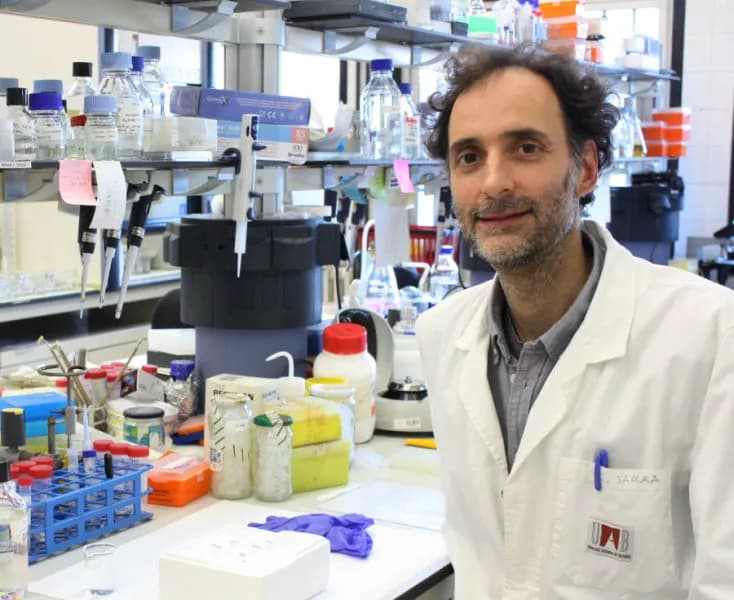
New Research Points To Potential Treatment For Memory Loss Activating A Protein Dysregulated In Dementia
A new study, published on the cover of the scientific journal Biological Psychiatry and lead by Dr Carlos Saura from the Institut de Neurociències (INc) at the Universitat Autònoma de Barcelona (UAB), reveals a new molecular mechanism essential for associative memory encoding in the hippocampus. This brain region is highly affected pathologically at early stages of several neurodegenerative diseases, including Alzheimer´s disease.
Associative memory is necessary to relate and remember situations, places and people at long term. This new study shows that a protein called CRTC1, which regulates genes essential for neuron function, needs to be activated in the hippocampus so that associative memory can be processed and stored.
In previous studies, the research group demonstrated that CRTC1 was disrupted in the brain of Alzheimer´s patients at early disease stages. Indeed, associative memory is one of the first cognitive abilities altered in dementia patients. The new study reveals that disruption of CRTC1 function also occurs while neurodegeneration is occurring.
To restore CRTC1 function, researchers used a gene therapy approach to introduce copies of this gene in a group of neurons in the hippocampus of a mouse model of neurodegeneration. Mice that have already memory deficits and neuropathology and treated with this gene-therapy approach were able to remember a negative experience that they had in the past. Mice that received an innocuous treatment did not remember the experience and they behaved normally. Carlos Saura explains that: "The relevance of this discovery is that activation of specific neurons of the hippocampus reverses memory loss even at late stages of neurodegeneration."
The study provides important knowledge on the molecular bases of memory processing in normal and pathological conditions, especially in memory disorders. "These results are exciting since provide strong support for potential translational applications in the clinic because this molecular mechanism could be a new target to reverse memory decline in dementia," said Dr Carlos Saura.
Materials provided by Universitat Autònoma de Barcelona. Note: Content may be edited for style and length.
Disclaimer: DoveMed is not responsible for the accuracy of the adapted version of news releases posted to DoveMed by contributing universities and institutions.
Primary Resource:
Parra-Damas, A., Chen, M., Enriquez-Barreto, L., Ortega, L., Acosta, S., Perna, J. C., ... & Saura, C. A. (2017). CRTC1 function during memory encoding is disrupted in neurodegeneration. Biological Psychiatry, 81(2), 111-123. DOI: 10.1016/j.biopsych.2016.06.025
Related Articles
Test Your Knowledge
Asked by users
Related Centers
Related Specialties
Related Physicians
Related Procedures
Related Resources
Join DoveHubs
and connect with fellow professionals

0 Comments
Please log in to post a comment.